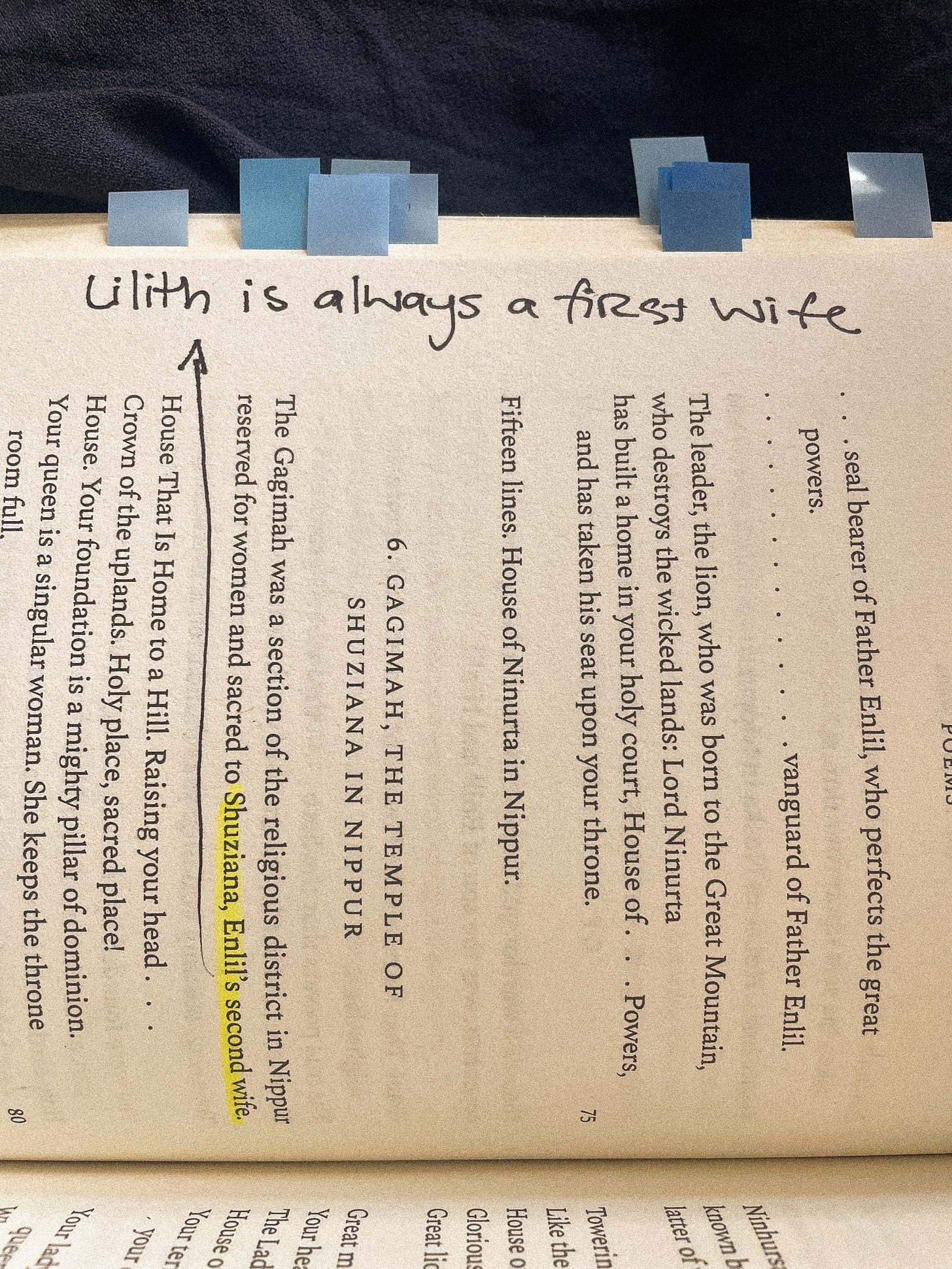Ninlil, The Oldest One
Lilith Returned, a series on the origins and evolution of one of the most demonized and weaponized women of mythology
Nisaba hands you a clay tablet, fresh and smooth. She’s worked it with her own ancient hands, pounding and leveling where the earth of the tablet tries to rise and dip. She has her own written language, the first of all of them, and she’s taught you how to chisel by instinct now. The sun glows along her dark spine as she bends to gather her tools and you wonder if the Tower of Babel was always so simply just … her body.
She’s strong and built like a Watchtower, seemingly larger than the trees or mountains but fluid like a wide winter river. Nisaba smells like loam and seaweed and you might think of her as exactly that - a continent of stories carved through with waterways no one can dam.
So you take the chisel when she stretches it toward you. You place it just so on the tablet. And then you wait for her story to begin.
“Ninlil was always a first wife,” she says. And the heart of Nature begins to thump from below, reverberating upward through your bones. It is a song of remembrance, the ancient Sumerian goddess’s story kept tucked away against the breastbone of the world; preserved in the dark, kept hidden from grubby, grasping hands. But today The Mother blooms at your feet, steadies your hand, and asks you to hold Ninlil reverently. She deserves as much.
“I suppose you assume that meant she’d been swept under a rug; that she was nothing more than a bitter, resentful first love.” Nisaba sighs. “Well, you wouldn’t assume that, would you?” she nods. “But some do. Some always do.
In Nippur, she was Ninlil, the great queen of the Leveled Lands. And she stood as the equal of her husband Enlil, the King of the Gods. He made no decisions without her. No, it was Ninlil who declared the destinies of souls.”
Her name,” Nisaba says tenderly in the way a mother does, “means Goddess or Lady (Nin) of the Wind or Air (Lil) and I have always pronounced it ni-in-lil.” Nisaba closes her eyes. She presses her palm flat against her belly, and is quiet for a moment. The sound of the chisel stills, and you press your hand to your own belly. Witness. Hold.
“She was the Goddess of the Wind, the Mother of Godds,” Nisaba’s voice cracks over the emotion churning up the column of her ebony throat. “She was unique and wild and powerful and she was the divine Queen.”
The air goes still. The potent grief of the Scribe catches in tree branches, swaying low and heavy overhead. It is her own breath rustling the leaves. Grief does this, you know. It radiates out like heat in a desert, scorching as it catches whatever has grown brutally dry. Grief becomes a hot wind that doesn’t know where it began or what it is seeking. It just is.
What is that in your own heart bursting into flame? What in you has been dormant tinder all this time?
Keep reading with a 7-day free trial
Subscribe to Love, Stephanie Greene to keep reading this post and get 7 days of free access to the full post archives.




